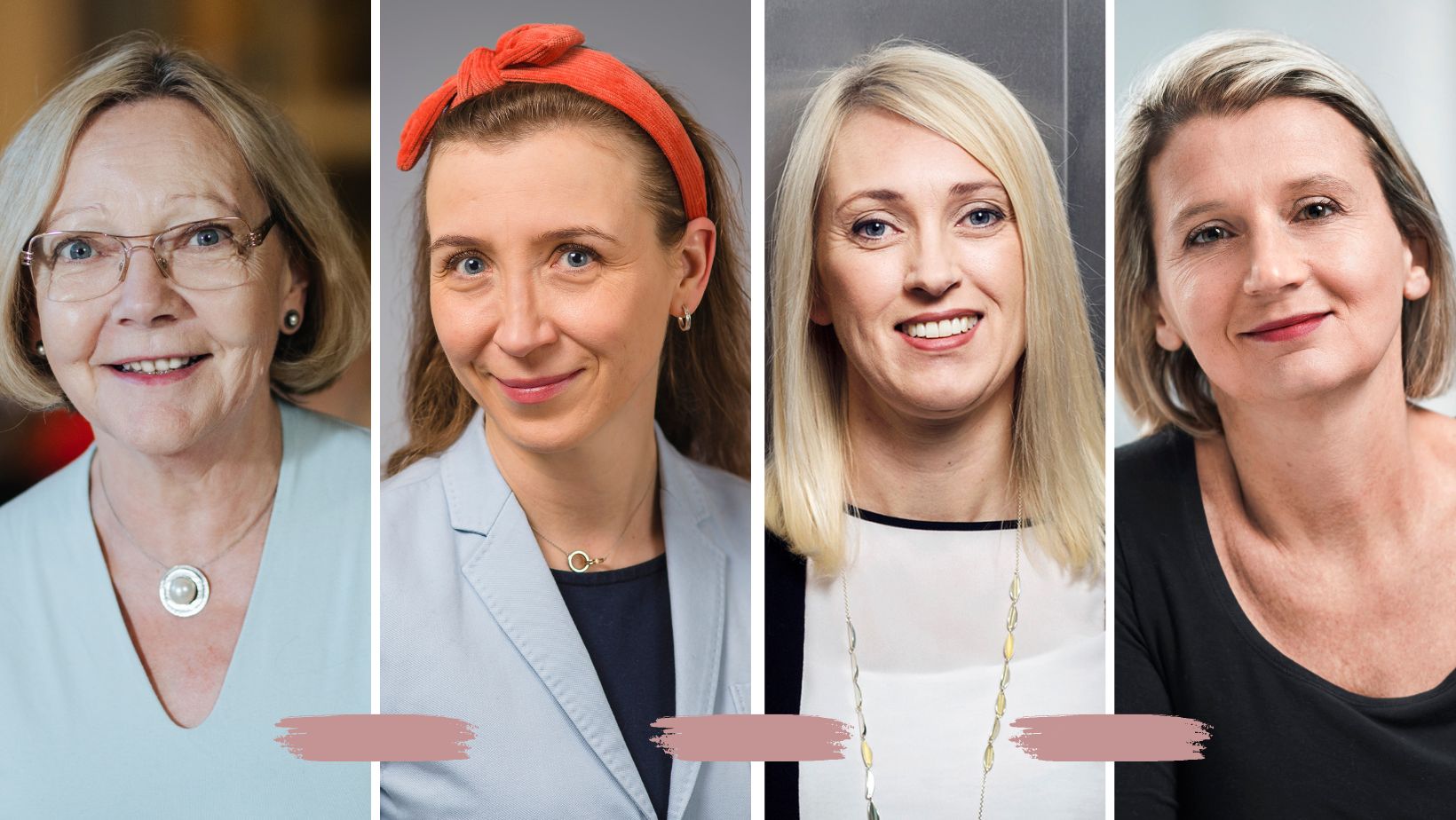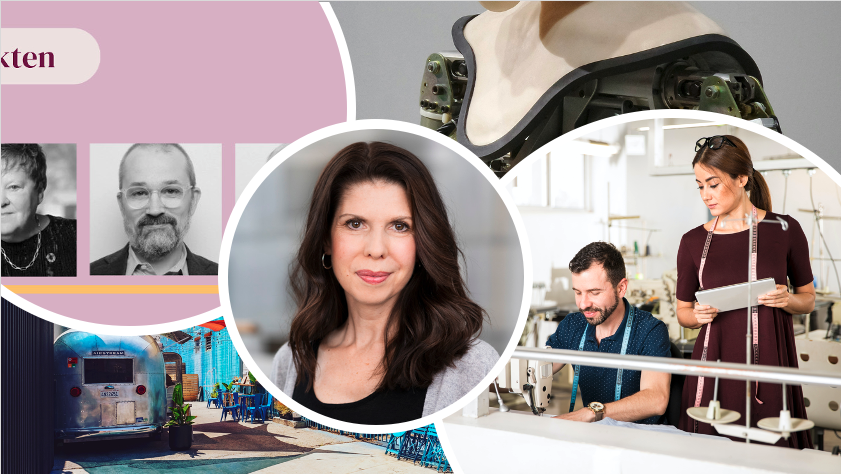INTERVIEW | 5 questions to Ebba Busch on gender inequality in entrepreneurship
- Published: 8 Mar 2024,
- 11:12 AM
- Updated: 8 Mar 2024,
- 10:17 AM


During the Swedish Agency for Economic and Regional Growth’s event in Stockholm on International Women’s Day, earlier today, Minister for Minister for Energy, Business and Industry Ebba Busch presented the assignments that the government is giving to the Swedish Agency for Economic and Regional Growth to promote women’s entrepreneurship. Esbri took the opportunity to ask the Minister five questions.
The government has a stated goal of improving the conditions for women to run and develop businesses. Over a three-year period, 2024-2026, the government is investing SEK 8 million annually to strengthen the conditions for women’s entrepreneurship, ownership and enterprise throughout Sweden. During the mission period, Tillväxtverket shall
- Implement actions to stimulate young women’s entrepreneurship and enterprise.
- Implement measures to facilitate and improve the conditions for small businesses to participate in public procurement.
- Develop methods to produce statistics with a particular focus on women’s business ownership.
- Implement actions to increase women’s access to finance.
- Organize events around International Women’s Day on 8 March 2025 and 2026.
Read more in the government´s press release.
Why is women’s entrepreneurship an important issue for you?
– Yes, it’s an issue close to my heart, I was quite moved to enter the room here among all the women who run or want to run and own businesses. I have long had a vision that we should do something concrete that can be measured afterwards and make a difference. I myself have been ostracized many times because of my being a woman or the obvious attributes that I have come up with in different contexts. If you were not born in Sweden and are a woman, this adds an extra dimension.
– There is power in politics, but also in real money and in learning. Even if you don’t have a big company or make a lot of money, empowerment is important. There is a great and special power in being your own boss. I feel inspired to support more women to live the life they want to live.
Many efforts have been made to promote female entrepreneurship in recent decades. Some have had temporary effects but no lasting effects to speak of. How do these measures you have presented today differ from previous measures and why will they make the big difference in the long term for women’s entrepreneurship?
– The assignment to the Swedish Agency for Economic and Regional Growth is based on the final report the published last fall, and on the round-table discussions we have had. If we feel that we will have enough data to know that the investments are right, we will put more pressure, more money and more resources into this going forward.
– The assignment also means that the Swedish Agency for Economic and Regional Growth will propose more initiatives and that we will have a better basis for further initiatives.
Those of us working in the world of innovation and entrepreneurship research know how much knowledge there is about women’s entrepreneurship and how many suggestions there are about what needs to be done to achieve gender equality in entrepreneurship. So how is it possible that this has not generated sustainable change?
– When I entered the Government Offices, my impression was that we have too little information. We have too little knowledge of what conditions that are really needed. And the parts we know about have not been sufficiently taken into account by those in power in politics. But there are also gaps that need to be filled.
Entrepreneurship researchers I have spoken to this week believe that as long as we have an unequal society in general, it will also be unequal in entrepreneurship. So isn’t this a bigger issue for a broader policy than just the Department of Trade and Industry?
– Yes, exactly. And then it is a great advantage that I also am the Deputy Prime Minister so that I can take an overall approach on behalf of the government in these matters. The government has taken several measures that also relate to parental leave insurance. I look forward to doing even more of that. There is a lot to be done in the labor market to make it more family-friendly and therefore also more women-friendly. Much of the perception of what it means to have a career is based on a rather narrow male norm. And it puts both men and women at a disadvantage.
– The view is still that to succeed you have to wave goodbye to your partner and children on Monday morning and then you don’t see them until it’s time for ‘quality time’ or Taco Friday. Many people want to be able to combine this. For example, the parental leave insurance must be more flexible and adapted to running a business.
In studies, women entrepreneurs have highlighted the importance of choosing the right partner to run a business. Comment on that?
– I did an interview with Breakit a few years ago where I was asked if I had any personal gender equality tips. And I replied “Don’t share your life with a dirt bag” – and I’m sticking to that. It is so important to find the right partner.
Read also:
Swedish Agency for Economic and Regional Growth’s final report to the government on women’s entrepreneurship (2023) + other underlying reports to the final report.
Panel of experts | Unequal entrepreneurship
2023 Expert Panel: “The state of play on gender equality in entrepreneurship”
DEBATE: Entrepreneurship – the forgotten issue of gender equality
NEW RESEARCH | 4 strategies women use to deal with inequality
NEW RESEARCH | Women run rural businesses for life balance
BOOK TIPS | Policies for women’s entrepreneurship
BOOK TIP | Entrepreneurial women create great value for themselves and others
BOOK TIP | Women in the minority in the tech world




